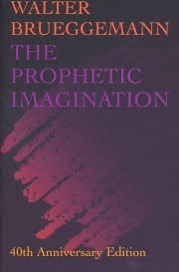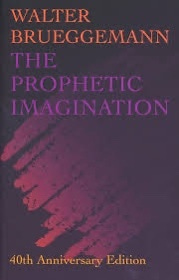At the end of April, I wrote a piece titled “On Fighting Culture Wars”. I was embarking on chapter four of my Fearless Christian University book project. The first part of the chapter, as I explained in the newsletter, examined the tensions that have arisen between Christian schools and universities and the federal government. I used Randall Balmer’s treatment of the Bob Jones history as a jumping off point. I then considered the ways in which Christian Smith’s “embattled and thriving” made culture warring likely.
I finished a working draft of the chapter last week. I titled it “On Not Fighting Cultur Wars”.
I spent a large part of the chapter covering the last decade of fights over LGBTQ+ policies in Christian Universities. I traced the path from the religious freedom letter signed by the then-Gordon president through the CCCU fights of 2015 to the more recent accommodations made by a number of Christian Universities. The pushback from alums, current students, and prospective students on what were perceived to be discriminatory policies has been a regular occurrence.
As James Davison Hunter observes in To Change the World, culture warring winds up being counterproductive in the long run. It damages public perceptions of institutions, it feeds generational divisions between younger students and faculty and the church leaders and trustees, and it is hard to sustain especially when taking place in a culture of fear of “going woke”.
The last section of the chapter imagines a shift from Culture Warring to Culture Making. I draw on the work of Makoto Fujimura and Andy Crouch on Culture Creation. I borrowed from the general premise of Walter Brueggemann’s classic The Prophetic Imagination. I then let my own imagination run wild on how a Fearless Christian University might engage in Culture Making that resolves Culture War issues in more productive ways.
Here are some selections from that section of the chapter:
Let me now attempt to sketch some hypotheticals of how current controversial topics could be better served through a Culture Making approach. I imagine that a commitment to Culture Making at a Christian University would result in white papers, workshops for churches, books, webpages, podcasts, and video productions. These would not be seen as niche projects with those with specialized interests, but as institution-wide operations.
Clip
Imagine instead a series of conversations around race. Perhaps older alumni could be asked to reflect on the white dominance present when they went to school. Older representatives from predominantly black churches that have provided students to the university could come and tell their stories of late-stage Jim Crow. Younger representatives from within the campus and the churches could tell their current stories. The outcome of these conversations could be a multi-day celebration of the institution’s history, institutional repentance for those aspects that compounded prior structural racism, and a sense of partnership with the Black community serving the university. The celebration could occur on campus, in denominational churches, and in the Black churches involved.
Clip
The issue of sexual harassment is a challenging one for Christian Universities. On the one hand, parents have hopes that their children will meet and marry someone who shares their faith while attending the school. Celebrations of engagements are well known (even though the gender imbalance at most schools means that most will not have the experience).
Christian Universities have appropriately developed policies defining sexual harassment and the processes through which they will be investigated. But as both #MeToo and #ChurchToo have shown us, having a policy doesn’t work if the atmosphere is one that makes it difficult to report.
Christian Universities have clear policies forbidding premarital sex and outlining sanctions that will follow violation of those policies. Yet the normative celebration of young heterosexual relationships embedded in the culture opens the door to various forms of sexual harassment, assault, and potential date rape.
A Christian school engaging in Culture Making would find this an opportunity for campus wide dialogues about gender expectations, toxic masculinity, and interpersonal power. These dialogues would draw from some excellent Christian authors, female faculty and staff members (with most males on the periphery), community activists, and young alumni. The end-product of such dialogues would be a document that underscored the commitments made to those of the opposite sex. That would become part of the orientation process and the institution’s marketing materials. The existing sexual harassment policy would be seen as a matter of institutional failure anytime it had to be invoked.
Clip
[T]here is still a great deal that Christian Universities can do regarding Culture Making around LGBTQ+ questions. First and foremost is a public recognition on the part of the institution that Christians are not univocal on the topic. As many mainline denominations have demonstrated (some better than others), differences of interpretation do exist even amid general consensus on fundamental doctrinal questions.
Additionally, Christian Universities should develop clearly stated non-discrimination policies. Campus members making hostile statements or actions against LGBTQ+ students should face disciplinary actions. Otherwise, the queer students are not full members of the community. Similarly, chapel addresses and public lectures should acknowledge the legitimate presence of the queer members of the community.
These adjustments would make clear that queer students belong (as many colleges have claimed in principle) as true members of the community. There is no need to draw lines around their interpersonal behaviors since there are already limits on premarital sex. Is it possible that the campus would have to see two members of the same sex holding hands crossing campus? Yes, but unless the school is willing to ban all public displays of affection (which some would welcome), this is only fair.
In short, there is a host of cultural artifacts that can be developed supporting queer students that do not require the Christian University to declare itself affirming. For institutions that pride (no pun intended) themselves on embracing Christian community, this is a minimum accommodation.
As one friend told me after reading the chapter, these hypotheticals need to be further fleshed out. I’m also on hunt for exemplars of Christian Universities that have tried something like these Culture Making approaches, so if something comes to mind, hit me up.
Initiatives like those I sketch here are well within the mission of Christian Universities as they have articulated them over the years. They would go a long way toward repairing Mark Noll’s “scandal of the evangelical mind”. They would demonstrate that Christian Universities are willing to back their claims about “All Truth being God’s Truth”. And they would paint a very different picture of the Christian University as a partner in resolving the major issues of our day.
Of course, achieving that requires a great deal of trust between administration, trustees, and faculty. Sadly, every day brings a new report of breaches of that trust, not just from Christian Universities, but across the higher education spectrum. Building and sustaining that trust in the academic community is the focus of Chapter Five.
Hopefully that won’t take me four months to finish.




